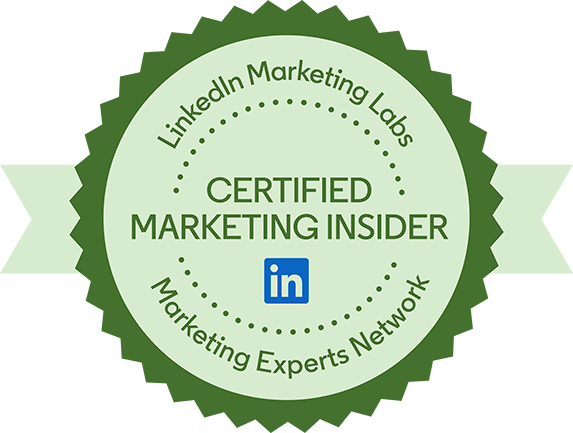My Online Marketing Coaching: Business Growth, Team Empowerment & ROI Optimisation
Date : November 9, 2025 By
Contents
- 1 What do I do as an online marketing coach?
- 2 What challenges can you tackle with my coaching sessions?
- 3 Am I qualified enough to coach your business team?
- 4 In which online marketing tactics can I help you improve?
- 5 How my coaching differs from online marketing courses / workshops?
- 6 How does an internet marketing coach differ from a digital marketing director?
- 7 The ROI of online marketing coaching
- 8 Online marketing coaching programs with Andrei Iunisov
- 9 Testimonials
Are you familiar with this? You know digital marketing channels: SEO, PPC, socials and others. But, you are still not hitting consistent ROI, and results remain unpredictable. You’re juggling contractors, but campaigns still don’t perform well, cost-per-lead is skyrocketing, agencies pull in different directions, and your team runs on gut feeling, not data. It’s time for an experience digital marketing coach to transform your chaos into clarity and consistent ROI.
A digital marketing coach (sometimes also called online marketing coach or internet marketing coach) is a strategic partner, providing guidance tailored to an organisation’s unique context and goals. We help companies unlock their full potential in the digital space, especially when these organisations already have digital marketing strategy, perform execution processes but can’t achieve desired objectives.
What do I do as an online marketing coach?
In my opinion, an internet marketing coach is a partner and mentor who can help businesses strategise and execute more effectively. As a coach myself, I typically do the following during my engagement:
- create new or adjust the existing strategy based on business objectives;
- give tactical guidance and build operational processes to execute this strategy;
- map human resources with this strategy, whether in-house or external contractors or hybrid;
- facilitate management decision making based on data.
The coaching process begins with a discovery call to assess the client’s objectives, existing metrics and current environment. Next, the coach will make a customised action plan. Once this plan is approved by the client, the coach will help businesses in execution through internal team development, additional hiring, building processes and workflows, and even by executing themselves for a certain time (and later passing execution to internal teams).
I fundamentally transform businesses in between these three core areas:
- data-driven decision-making based on web analytics;
- dealing with resistance to change in marketing teams;
- building lasting digital marketing capabilities balanced between in-house and external contractors.
Good coaches ensure marketing decisions are based on concrete data, and therefore, I facilitate a culture that embraces web data analysis, new methods and views setbacks as learning opportunities.
The ideal result of my coaching is sustainable internet marketing process that keeps delivering value long after the I leave from the project. You have a clear, measurable growth strategy, a confident internal marketing process, and a team that executes it. You know what works, what does not work, and how not to waste time or budget.
What challenges can you tackle with my coaching sessions?
Do you recognise this?
- You tried multiple marketing channels, but nothing delivers consistent ROI.
- You’re juggling agencies, freelancers, and dashboards, but results still depend on luck.
- You’re reacting to market changes instead of leading them.
- You have smart people and tools, but no unified process.
- You want to scale sustainably — not chase another “growth hack.”
In my coaching practice, I constantly notice these typical online marketing challenges. Most organisations I worked with were focusing on separate fragmented channels, reported vanity metrics or used fancy tools with no outcomes, lacking a coherent digital marketing strategy, processes and resources to execute it.
Bridge the gap between business goals & digital marketing activities
This is the foundational activity in any coaching project. I turn high-level business goals from your P&L and overall business strategy into concrete, measurable digital marketing KPIs. Only this way marketing efforts can directly and efficiently support the organisation’s goals. This has to be practical enough and balance digital marketing best practices with a specific organisation’s resource constraints.
Develop execution strategy to achieve KPIs
At this stage, I strategise based on your unique business context. During our coaching sessions, we review your market position, competition, and organisational culture. When creating an execution plan, we consider factors like legal regulations in your niche, available budget, human resources, and available technology. As a result, you receive targeted recommendations based on your specific situation.
Stay ahead of digital marketing trends
In the fast-paced world of digital marketing, businesses need coaches to stay ahead of the curve. When you hire me, you get insights from a person who monitors trends, identifies valuable innovations and guides your organisation in adopting new technology or strategies. Most importantly, this is not done only out of interest, but innovations are used only aligned with your KPI objectives.
Extract actionable insights from data
Here we extract your raw digital marketing data, transform it (if needed) and turn it into actionable business intelligence. I do it to help management in building frameworks that drive decision-making based on data rather than assumptions. Certainly, it starts with auditing current measurement systems and finding gaps in tracking or reporting. Together we work on proper tracking, custom dashboards for KPIs, and automated reporting workflows. Then for a certain amount of time I guide data interpretation and analysis, later on transferring this fully to the current management team.
Enhancing in-house team skill sets
My online marketing coaching often focuses on bettering the skills and knowledge of in-house teams across various acquisition channels and strategies, especially emerging channels like Reddit markeitng, generative engine optimisation (GEO) and others. By providing targeted training, I reduce my customer’s reliance on outside agencies, which lets them save budgets. Internal teams may struggle to work well and resist change. Rather than outsourcing as a single way to go, I focus on upskilling teams to build sustainable internal expertise and facilitate organisational changes. To address management issues, which can be a significant challenge, I create calendars, workflows, cheatsheets and playbooks for various digital areas.
Am I qualified enough to coach your business team?
The most effective digital marketing coaches combine active practitioner experience with coaching expertise, which is what I do myself. This ensures that my advice actually stems from proven, hands-on knowledge rather than just theory. My analytical mindset and data-driven approach allows me to connect marketing activities directly to business metrics, explaining complex concepts in simple terms.
Apart from some other coaches, I put long-term strategies first, instead of quick fixes. I focus on building the proper foundations rather than promising unrealistic immediate results. My position is to be transparent about timelines and challenges that may arise during the engagement.
When choosing a digital marketing coach, you want to look for industry-specific expertise. One way to check is to review case studies that show their understanding of your business model, target audience, channels and budget. For instance, my focus over the last 19+ years of my career are technology, professional services, manufacturing and B2B.
The success of coaching depends on how they communicate and fit with a company’s culture. In first consultations, it’s important to see how coaches engage. They should show their knowledge but still be active listeners, asking thoughtful questions rather than just prescribing solutions. Their communication patterns should align with your team’s workflow, with clear expectations around frequency, response times and platforms.
When selecting a digital marketing coach, you should focus on their method of measuring ROI. Everything starts with data, so I start any engagements by implementing clear tracking methodologies. This is needed to ensure you collect correct data, set baseline metrics properly and measure success benchmarks. During my projects, I track very specific business-related metrics like cost per lead, cost per sale, lead to opportunity conversion, and sales pipeline growth. Such transparent reporting framework allows me to link success in achieving KPIs to specific activities I propose.
In which online marketing tactics can I help you improve?
I am a generalist, because I worked in almost all online marketing spheres during my career.
- Extracting insights from online competitor analysis
- Growing your organic SEO traffic and rankings
- Growing your brand visibility and citations in AI-driven search (GEO)
- Optimizing your performance across PPC ad platforms
- Mastering social media advertising and marketing
- Improving your pipeline with account-based marketing
- Leveraging email marketing and customised outreach using AI
- Marketing on YouTube, Reddit, TikTok, Twitch and other emerging channels
- Implementing robust web analytics and measurement strategies
Most of my clients start seeing the difference within the first few months of our project. You’ll spend less on ads that don’t work and attract more qualified leads. Your website will convert visitors better than now. Your traffic from organic and social channels will stop fluctuating and will start to grow. Your marketing team will gain confidence and stop depending on external agencies for every campaign. You’ll finally have clear visibility into what drives ROI — and a system that keeps improving itself.
How my coaching differs from online marketing courses / workshops?
While online courses and workshops provide valuable foundational knowledge in digital marketing, personalised coaching is fundamentally different and more impactful. The dynamic nature of digital marketing requires adaptive learning approaches that can respond to real-world challenges and opportunities as they emerge. With me as your coach, you get this flexibility, and you can make sure the learning journey aligns perfectly with your business goals and organisational context.
One-on-one attention and tailored advice
Unlike online courses, I provide one-on-one attention focused specifically on your business’s challenges and goals. This personalised approach takes into account your current human and financial resources, technical capabilities and knowledge gaps. In addition, there are many nuances of using new strategies in your organisation’s culture. I make myself aware of your constraints and provide further guidance on managing internal stakeholders and resources – aspects generic courses or workshops typically don’t address.
Solving problems in real time and adjusting tactics
Coaching provides the specific upside of dealing with challenges at the moment. Pre-recorded courses don’t do this. Since we’re working constantly, I give immediate support when you run into issues while trying new strategies or face sudden market shifts. Some great examples of this are Google algorithm updates and competitor advertising moves. You get fast situation analysis, solution identification and necessary changes implementation before opportunities are lost or problems get worse. My 19 years of experience suggest proven approaches and help avoid common pitfalls. This truly saves you money.
Maintaining support and accountability to grow your business
Coaches also hold businesses accountable. When I am engaged in a project, I make sure you and your team are making continual progress toward your goals. Unlike self-paced courses, I check in regularly and have milestone reviews to keep you on track. It’s a nice mix of realistic yet challenging goals and structured plans. These efforts go beyond task completion and actually measure the impact of newly adopted strategies. They also motivate and give support during challenging times, managing short-term pressures while focusing on long-term goals.
Giving direct feedback on your online marketing campaigns
The most valuable aspect of personalised coaching is that you get expert feedback on your efforts. During a project, I review your specific work and offer detailed, actionable feedback for improvement – something that general courses can’t do. Specifically I provide feedback by reviewing your web analtyics data, campaign settings, creative materials and content. With this practical feedback, you understand why certain methods don’t give the expected results and received tested solutions based on my experience. Further, the feedback process goes beyond individual campaigns to include broader organisational processes, such as internal workflows, documentation and training materials. I also provide guidance on managing agency relationships and vendor evaluations.
How does an internet marketing coach differ from a digital marketing director?
While both roles add to digital marketing success, they serve fundamentally different purposes in a company. Directors are internal leaders who manage daily operations, execute strategies and supervise teams. They focus on tactical decisions and keep consistent marketing operations within established frameworks.
Digital marketing coaches, conversely, are external advisors. They bring fresh perspectives and industry-wide insights. They maintain objectivity to find blind spots and challenge assumptions, focusing on building new skills rather than managing existing ones. Their success lies in enhancing organisational knowledge and establishing improved processes for long-term growth.
The relationship dynamics also contrast sharply. Directors work within hierarchical structures, making and enforcing decisions. Coaches build collaborative partnerships across organisational levels. This partnership approach lets coaches drive consensus-based change and develop capabilities that last long after coaching ends – complementing rather than replacing the director.
The ROI of online marketing coaching
According to the U.S. Bureau of Labor Statistics (2023), marketing directors have base salaries ranging from $120,000 to $180,000 in mid-market companies. The Society for Human Resource Management (SHRM) 2023 Benefits Survey indicates that employers typically spend 25% of base salary on benefits, amounting to $30,000 – $45,000 annually. Federal Insurance Contributions Act (FICA) requires employers to pay 7.65% in payroll taxes, resulting in $9,180 – $13,770 in additional costs.
Kaiser Family Foundation’s 2023 Employer Health Benefits Survey reports that average annual health insurance costs between $12,000 and $20,000 per employee. Standard 401(k) matching programs (typically 3%) add $3,600 – $5,400 annually, while professional development allocations average $3,000 – $5,000 per executive position, according to LinkedIn’s 2023 Workplace Learning Report.
Robert Half’s 2023 Hiring Trends Report indicates that one-time recruitment costs for executive positions range from $15,000 to $25,000. Equipment, software, and infrastructure setup typically cost $5,000 – $8,000 in the first year, based on 2023 Gartner’s IT Spending Report. Training and integration expenses, as reported by Training Industry Magazine, average $8,000 – $12,000 for executive positions.
- Total First-Year Cost: $205,780 – $314,170
- Subsequent Annual Cost: $177,780 – $269,170
Based on data from the Professional Pricing Society’s 2023 Consulting Fees Study, digital marketing coaches typically structure their services in several tiers:
- Monthly retainer engagements range from $1,500 – $3,000 for light packages (5-10 hours), $3,000 – $6,000 for standard packages (10-20 hours), and $6,000 – $12,000 for intensive packages (20-40 hours). These figures align with the Independent Consulting Benchmark Study of 2023.
- Project-based coaching programs, according to the Professional Coaches Federation’s 2023 Rate Survey, typically cost $15,000 – $30,000 for three-month intensives, $25,000 – $50,000 for six-month programs, and $40,000 – $80,000 for annual programs.
The Harvard Business Review’s 2023 study on executive development investments shows that traditional marketing directors need 3-6 months to reach full productivity, with first-year costs starting at $205,780. The Corporate Executive Board’s research shows high-risk factors in executive hires, with 40% failing within 18 months.
In contrast, coaching engagements, which average $36,000 annually (standard package), show immediate impact potential. The International Coach Federation’s 2023 Global Coaching Study reports an average ROI of 367% for strategic marketing coaching engagements. Their case studies demonstrate typical outcomes in a 6-month program ($30,000 investment):
- Revenue increases from implemented strategies average $100,000, based on documented client results.
- Team upskilling value is calculated using training replacement costs. This amounts to approximately $25,000.
- Process improvements and efficiency gains add $15,000 in value, resulting in a total return of $140,000.
Online marketing coaching programs with Andrei Iunisov
Before proposing any coaching packages, we start with a free session, where we try understanding your business situation and how our coaching engagement could help you achive business objectives. Based on this information, I propose a truly customised online marketing coaching project. Building a digital marketing vehicle that works doesn’t happen overnight, it is a process. Therefore, in the proposal I’ll try to outline a roadmap. An example of such roadmap is below.
Month 1
-
Deep-dive into your current digital marketing performance
-
Identify gaps, inefficiencies, and missed opportunities
-
Improving measurement, define clear KPIs tied to ROI
Months 2 – 3
- Streamline reporting and eliminate duplicate efforts
-
Set up tracking, dashboards, and accountability routines
- Optimise conversion rates into leads and opportunities
Months 4 – 6
-
Optimise campaigns based on performance data
-
Strengthen internal capability so your team can operate independently
-
Improve content quality for better retrieval and citations
Coaching pricing & terms
I don’t believe in one-size-fits-all “coaching packages”. Conversely, I propose customised coaching projects tailored specifically to your business situation. Price-wise, my engagements start at 600 AUD per month (excl. GST) and include at a minimum:
- 2 in-depth coaching calls monthly (I don’t believe once a month can make a difference)
- Session recordings for future references
- Ongoing support via email and messenger to help you and your contractors execute
- Flexible scheduling to align with your timezone
- No contract lock-in (you’re free to go with a short time notice)
I work with only several coaching clients, because each engagement requires my full attention and because I have execution clients, too.
Testimonials
My key differentiator is award-winning 19-year experience in the digital marketing field on both client and agency side, as well as broad industry experience (consumer, B2B, tech and more). Read about my bio and achievements here, check out my case studies, awards, media & academic engagements and public presentations about digital marketing. I have 30+ public verified reviews on Clutch from clients of various economy sectors, which proves my practical experience. Clutch profile quote:
Andrei Iunisov’s services are noted for their good value and effective results, with many clients highlighting cost-effective campaigns and significant improvements in SEO and lead generation. Clients consistently reported satisfaction with the pricing relative to quality.
Discover Your Business’s Growth Potential
No sales pitch: just clarity, recommendations, and a clear path forward.








